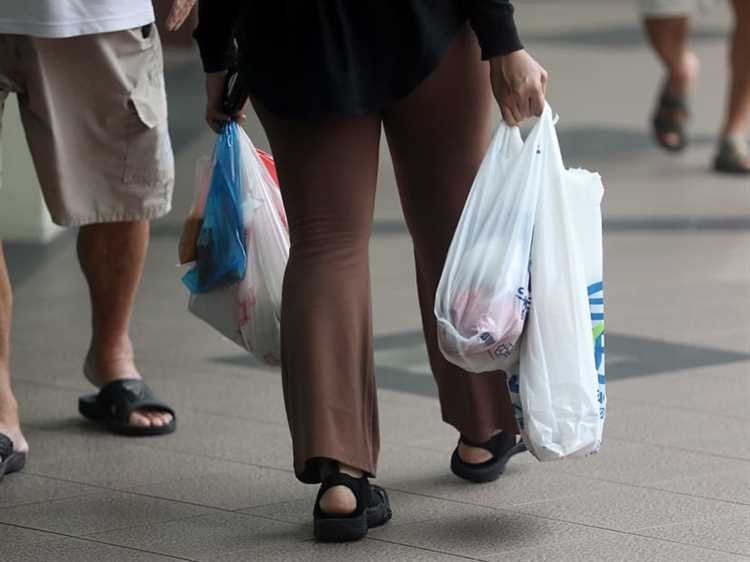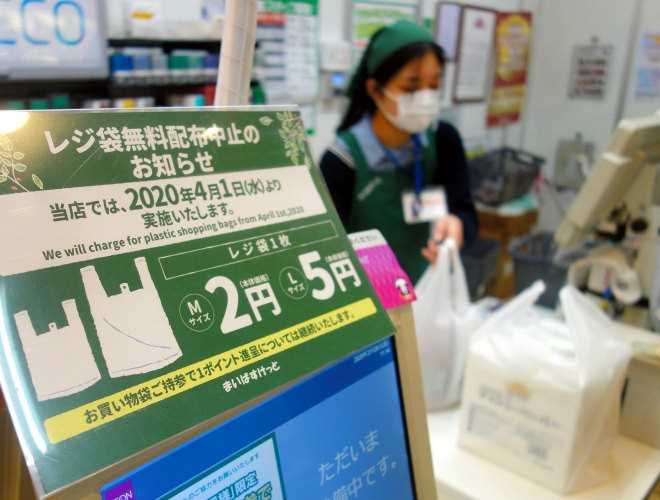
In recent years, there has been a growing concern about the impact of plastic bags on the environment. These single-use bags are known for their long-lasting effects, taking hundreds of years to decompose. To combat this issue, many countries and regions around the world have implemented plastic bag charges as a way to encourage consumers to bring their own reusable bags. But are all shops required to implement these charges?
The answer is not as straightforward as one might think. While many countries have legislation in place that requires shops to charge for plastic bags, the specific regulations can vary from place to place. For example, in some countries, the charges may only apply to larger retailers, while smaller shops are exempt. In other cases, the charges may only be mandatory in certain regions or cities. This variation in regulations has led to some confusion among consumers and shop owners alike.
However, despite the differences in implementation, the overall goal of plastic bag charges remains the same: to reduce the use of single-use plastic bags and promote more sustainable alternatives. By making consumers think twice before accepting a plastic bag and by incentivizing the use of reusable bags, these charges can have a significant impact on reducing plastic waste and protecting the environment.
So, while not all shops may be required to implement plastic bag charges, it is clear that this measure is an important step towards a more sustainable future. As consumers, we can also play our part by bringing our own reusable bags whenever we go shopping and by actively supporting businesses that have embraced sustainable practices. Together, we can make a difference in reducing plastic waste and preserving our planet for future generations.
- Understanding Plastic Bag Charges
- How do plastic bag charges work?
- Benefits of plastic bag charges
- Why Plastic Bag Charges are Implemented
- Benefits of Plastic Bag Charges
- 1. Environmental Protection
- 2. Reduction in Single-Use Plastics
- Which Shops Must Implement Plastic Bag Charges?
- Exceptions to the Plastic Bag Charges
- Small Shops
- Unpackaged or Certain Types of Produce
- Delivered Goods
- Medicines and Prescription Drugs
- Special Circumstances
- How Plastic Bag Charges are Enforced
- Impact of Plastic Bag Charges on the Environment
- Q&A,
- Do all shops have to implement plastic bag charges?
- Why are some shops not required to implement plastic bag charges?
- What are the benefits of implementing plastic bag charges?
- Are there any exemptions for plastic bag charges?
- How much are the charges for plastic bags?
- Do all shops have to charge for plastic bags?
Understanding Plastic Bag Charges
Plastic bag charges have become an increasingly common method used to reduce plastic waste and promote environmental sustainability. These charges require consumers to pay a small fee for each plastic bag they use when shopping, encouraging the use of reusable bags instead.
How do plastic bag charges work?
The implementation of plastic bag charges varies across different countries and regions. In some cases, the charges are applied universally, meaning that all shops are required to implement them. In other cases, it may be up to the individual shops and businesses to decide whether or not to charge for plastic bags.
Generally, when a plastic bag charge is in effect, customers will either be charged a specific amount for each individual plastic bag they use, or they will be offered the option to purchase reusable bags at a discounted price. The purpose of these charges is to deter the use of single-use plastic bags and encourage customers to bring their own reusable bags when shopping.
Benefits of plastic bag charges
Plastic bag charges have proven to be an effective method for reducing plastic waste and promoting sustainable practices. By charging for single-use plastic bags, consumers are incentivized to switch to reusable bags, reducing the demand for plastic bags and leading to a decrease in plastic pollution.
In addition to reducing plastic waste, plastic bag charges can also have positive economic effects. The revenue generated from the charges can be used to support environmental initiatives or fund waste management programs. Furthermore, the implementation of these charges can lead to the creation of new jobs in industries related to the manufacturing and distribution of reusable bags.
Overall, plastic bag charges are a practical and effective solution to address the environmental issues caused by plastic waste. By implementing these charges and encouraging sustainable consumer behavior, we can work towards a cleaner and greener future.
Why Plastic Bag Charges are Implemented
Plastic bag charges are implemented in order to reduce the use of single-use plastic bags and encourage shoppers to bring their own reusable bags. The implementation of these charges aims to raise awareness about the harmful effects of plastic bags on the environment and the importance of sustainable practices.
Plastic bags pose a significant threat to wildlife and ecosystems, as they can take hundreds of years to decompose. They often end up in landfills or in waterways, where they can harm marine life and contribute to pollution. By implementing charges for plastic bags, shops are able to incentivize customers to make more environmentally-friendly choices and reduce their plastic waste.
In addition to environmental benefits, plastic bag charges also have economic advantages. They can help businesses save money by reducing the cost of providing bags to customers. By charging for bags, shops are able to cover the expenses associated with providing more sustainable alternatives, such as paper bags or reusable bags made from materials like cotton or jute.
Furthermore, plastic bag charges have been shown to be effective in reducing plastic bag usage in countries where they have been implemented. Studies have found that charging for plastic bags can lead to a significant decrease in their consumption, with many shoppers opting to bring their own bags instead. This shift in behavior can have a significant impact on reducing plastic waste and protecting the environment.
Overall, plastic bag charges are implemented as a means to combat the negative environmental impacts of single-use plastic bags, promote sustainable practices, and encourage shoppers to make more conscious choices. By charging for plastic bags, shops can play a key role in reducing plastic waste and protecting the planet for future generations.
Benefits of Plastic Bag Charges
Plastic bag charges have been implemented in many countries and regions around the world, and they have proven to have several significant benefits.
1. Environmental Protection
One of the primary reasons for implementing plastic bag charges is to reduce the negative impact of these bags on the environment. Plastic bags take hundreds of years to decompose, and during that time, they can cause serious harm to wildlife and ecosystems. By charging for plastic bags, people are encouraged to use less and opt for eco-friendly alternatives such as reusable bags, thus reducing the amount of plastic waste produced.
2. Reduction in Single-Use Plastics
Plastic bag charges have been effective in reducing the consumption of single-use plastics. When people have to pay for plastic bags, they are more likely to think twice before using them and consider alternative options. This leads to a decrease in the demand for single-use plastics, helping to combat plastic pollution.
Furthermore, the introduction of charges on plastic bags has prompted many retailers to explore and adopt sustainable packaging alternatives. This has led to innovation in the packaging industry and the development of more sustainable solutions, resulting in a broader positive impact on the environment.
In conclusion, plastic bag charges bring about numerous benefits for both the environment and society as a whole. They help protect the environment, reduce plastic waste, and encourage the adoption of more sustainable practices. By implementing plastic bag charges, countries and regions can take a significant step towards creating a cleaner and greener future.
Which Shops Must Implement Plastic Bag Charges?

The mandatory implementation of plastic bag charges varies from country to country and even from region to region. In some places, all types of shops are required to implement plastic bag charges, while in others, only certain types of shops are required to do so.
In general, the types of shops that are most commonly required to implement plastic bag charges include:
- Supermarkets and grocery stores
- Retail clothing stores
- Pharmacies
- Convenience stores
- Department stores
- Hardware stores
These types of shops often generate a large amount of single-use plastic bags due to the nature of their businesses. By implementing plastic bag charges, these shops can encourage customers to bring their own reusable bags and reduce the overall consumption of plastic bags.
However, it’s important to note that the specific requirements for plastic bag charges can vary, so it’s best to consult local regulations or check with individual shops to determine if they are required to implement plastic bag charges.
Exceptions to the Plastic Bag Charges
While most shops are required to implement plastic bag charges, there are some exceptions to this rule. These exceptions include:
-
Small Shops
Small shops with fewer than 250 employees are temporarily exempt from the plastic bag charges. This exemption is in place to minimize the burden on small businesses and give them time to adjust to the new legislation.
-
Unpackaged or Certain Types of Produce
Bags used for unpackaged food, such as loose fruit, vegetables, or freshly baked goods, are exempt from the plastic bag charges. The purpose of this exemption is to ensure hygiene and prevent contamination of food items.
-
Delivered Goods
When goods are delivered to customers, the plastic bags used for packaging these items are exempt from charges. This exception is meant to prevent additional costs for online retailers and delivery services.
-
Medicines and Prescription Drugs

Bags used for medicines and prescription drugs are exempt from plastic bag charges. This exemption is to ensure that patients have convenient and hygienic ways to transport their medication.
-
Special Circumstances
In certain cases, individuals with specific needs or disabilities may be exempt from plastic bag charges. This is to accommodate those who require additional support in carrying their purchases.
It’s important to note that these exceptions may vary depending on the specific regulations imposed by the government or local authorities. Therefore, it is advisable to check with individual shops or relevant governing bodies for the most up-to-date information on plastic bag charges and exemptions.
How Plastic Bag Charges are Enforced
Plastic bag charges are enforced in different ways depending on the country or region. In some places, the charges are mandatory and all shops are required by law to implement them. The government usually sets the price of the charge and provides guidelines on how it should be implemented.
Shop owners are responsible for ensuring that the charges are applied correctly. They must charge customers for each plastic bag they use and provide a receipt for the charge if requested. Most shops have signs or stickers indicating the charge and reminding customers to bring their own reusable bags.
In some cases, shop owners may face penalties or fines if they fail to implement the plastic bag charges. The government may conduct regular inspections to ensure compliance and fine those who do not follow the rules. These fines can vary depending on the severity of the non-compliance.
Consumers also play a crucial role in enforcing plastic bag charges. By choosing to bring their own bags or opting for alternatives like paper or reusable bags, they can help reduce the demand for plastic bags and encourage shops to adhere to the charges.
Additionally, some countries or regions have implemented systems to monitor the use of plastic bags. This can involve tracking the number of bags sold by each shop and reporting the data to the government. These measures help ensure transparency and accountability in enforcing the charges.
Overall, the enforcement of plastic bag charges is a collaborative effort between the government, shop owners, and consumers. By working together, we can reduce the negative impact of plastic bags on the environment and promote sustainable practices.
Impact of Plastic Bag Charges on the Environment
The implementation of plastic bag charges has had a significant impact on the environment. By imposing fees on the use of plastic bags, it has encouraged individuals to reduce their consumption and opt for more sustainable alternatives.
Reduction in Plastic Waste:
The introduction of plastic bag charges has led to a significant reduction in plastic waste. Many shoppers are now using reusable bags or choosing paper bags instead. This has resulted in fewer single-use plastic bags being used and ultimately ending up in landfills or as litter in the environment.
Protection of Wildlife:
Plastic bags pose a significant threat to wildlife, especially marine animals. When disposed of improperly, plastic bags can end up in rivers, oceans, or other natural habitats. Animals mistake these bags for food and can suffer from ingestion or entanglement. The implementation of plastic bag charges has helped reduce the number of plastic bags in the environment, therefore decreasing the risk to wildlife.
Reduction in Resource Consumption:
The production of plastic bags requires significant amounts of natural resources, including oil and gas. By reducing the demand for plastic bags through monetary charges, less energy and resources are needed in their production. This has positive implications for the environment and contributes to the overall reduction of greenhouse gas emissions.
Shift towards Sustainable Practices:
The implementation of plastic bag charges has also encouraged a shift towards more sustainable practices among consumers and retailers. Many individuals are now more conscious of their environmental impact and are actively seeking alternative packaging options. Retailers have also responded to customer demands by offering reusable bags or encouraging the use of paper bags.
Overall, the impact of plastic bag charges on the environment has been positive. It has led to a reduction in plastic waste, protection of wildlife, decreased resource consumption, and a shift towards more sustainable practices. These measures are crucial in addressing the environmental challenges posed by single-use plastics and working towards a greener future.
Q&A,
Do all shops have to implement plastic bag charges?
No, not all shops are required to implement plastic bag charges. The regulations regarding plastic bag charges vary from country to country or even from city to city. Some places have imposed strict laws that require all shops, including grocery stores, retail stores, and grocery stores, to charge customers for every plastic bag they use. However, in other places, it might still be optional for shops to implement these charges.
Why are some shops not required to implement plastic bag charges?
The decision to require shops to implement plastic bag charges depends on the local government’s regulations and policies. In some places, the government might not have implemented any laws or regulations regarding plastic bag charges, so it remains optional for shops. Other factors that might influence this decision include the local environmental concerns, public opinion, and the level of urgency to reduce plastic waste in the area.
What are the benefits of implementing plastic bag charges?
Implementing plastic bag charges can have several benefits. Firstly, it encourages shoppers to bring their reusable bags, which reduces the consumption of plastic bags and minimizes plastic waste. This helps in protecting the environment and conserving resources. Additionally, charging for plastic bags can also generate revenue for shops, which can be used for various purposes like supporting environmental initiatives or implementing sustainable practices within the business.
Are there any exemptions for plastic bag charges?
Some places might have exemptions for plastic bag charges. For example, certain types of bags, such as paper bags or bags used for specific purposes like packaging fragile items, might be exempt from charges. Moreover, some shops might also exempt customers who have specific needs or disabilities that require them to use plastic bags. However, these exemptions vary depending on the regulations imposed by the local government or authorities.
How much are the charges for plastic bags?
The charges for plastic bags can vary depending on the location and the shop’s policies. The charges can range from a few cents to a few dollars per bag. The purpose of these charges is not to burden customers, but to create awareness and encourage them to bring their reusable bags. The money generated from these charges is often used for environmental initiatives or to cover the costs of implementing more sustainable practices in the shop.
Do all shops have to charge for plastic bags?
No, not all shops are required to charge for plastic bags. The policy regarding plastic bag charges varies from country to country and even within different regions of the same country. Some places have implemented a mandatory charge for plastic bags, while others have not. It is important to check the regulations in your specific area to know which shops are required to charge for plastic bags.